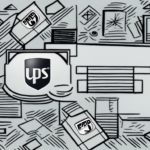Understanding UPS Insurance Policies
If you are a business owner, protecting your shipments is crucial to maintaining your operations and customer satisfaction. UPS insurance policies offer a way to safeguard your packages against unexpected losses or damages. In this section, we delve into what UPS insurance entails and how it functions to secure your business transactions.
What is a UPS Insurance Policy?
A UPS insurance policy is a specialized insurance plan that covers the loss or damage of packages shipped through United Parcel Service (UPS). This type of policy is essential for businesses that regularly ship goods, as it provides financial protection against potential transit-related losses.
How Does It Work?
When you purchase a UPS insurance policy, you are essentially insuring the value of the shipped package. In the event of loss or damage, you can file a claim to receive reimbursement up to the insured value. It's important to review the policy's terms and conditions to understand the coverage limits and any exclusions that may apply.
Types of UPS Insurance Policies
UPS offers various insurance options to cater to different business needs. Understanding the types available can help you select the most appropriate coverage for your shipments.
UPS Declared Value
The UPS Declared Value coverage is the most basic insurance option, covering up to $100 per package. This is suitable for low-value items such as documents or small products.
UPS Standard Insurance
UPS Standard Insurance provides extended coverage, insuring packages for up to $50,000. This option is ideal for businesses shipping high-value items, offering greater financial protection.
Third-Party Insurance
In addition to UPS's own insurance, third-party insurance providers offer policies that can be tailored to specific business needs. These external policies often provide flexible terms and higher coverage limits, making them a valuable option for businesses with unique shipping requirements.
Benefits of UPS Insurance for Your Business
Investing in a UPS insurance policy offers multiple advantages that can enhance your business operations and customer relations.
Financial Protection
UPS insurance safeguards your business against significant financial losses resulting from lost or damaged packages. This protection ensures that unexpected incidents do not disrupt your cash flow or profitability.
Enhanced Customer Trust
By offering insured shipping options, you demonstrate a commitment to customer satisfaction and reliability. This can lead to increased customer loyalty and positive reviews, fostering long-term business growth.
Operational Continuity
With insurance coverage, you can maintain smooth business operations even when unforeseen shipping issues occur. This continuity is vital for preserving your reputation and meeting customer expectations consistently.
Exclusions, Limitations, and Considerations
While UPS insurance policies provide substantial coverage, it's important to be aware of certain exclusions and limitations that may affect your claims.
Common Exclusions
Standard UPS insurance policies typically exclude coverage for:
- Items damaged due to improper packaging
- Normal wear and tear
- Damage resulting from natural disasters or acts of terrorism
- Prohibited or restricted items as defined by law
Policy Limitations
There are often limitations on the maximum value that can be insured per package. Additionally, some policies may require higher premiums for insuring extremely high-value items. It's crucial to assess your shipping needs and select a policy that offers adequate coverage without unnecessary expenses.
Legal Requirements
Depending on your location and the nature of your business, certain legal requirements may mandate the purchase of specific insurance types. Ensure you comply with all relevant regulations to avoid legal complications and ensure seamless business operations.
Choosing the Right UPS Insurance Policy
Selecting the appropriate UPS insurance policy involves careful consideration of various factors to ensure that your coverage aligns with your business needs and budget.
Assessing Your Business Needs
Evaluate the types of products you ship, their value, and the frequency of shipments. High-value items or frequent shipping may necessitate more comprehensive insurance coverage to mitigate potential risks effectively.
Comparing Providers
Research and compare policies from different insurance providers, including UPS and third-party insurers. Look for reviews, coverage options, and pricing to find the best fit for your business. Resources such as shipping carriers comparisons can offer valuable insights.
Cost-Saving Strategies
Consider strategies to reduce insurance premiums without compromising coverage. Bundling insurance policies, increasing deductibles, or opting for longer-term plans can help lower costs while maintaining adequate protection.
Filing Claims and Maximizing Coverage Benefits
Understanding the claims process and best practices can help you maximize the benefits of your UPS insurance policy, ensuring swift and fair compensation when needed.
How to File a Claim
To file a claim, contact UPS or your insurance provider promptly with detailed information about the lost or damaged package. Provide necessary documentation such as receipts, tracking information, and photos of the damage to support your claim.
Best Practices to Maximize Benefits
Ensure all packages are properly packaged according to UPS guidelines to avoid claim denials. Keeping accurate records of shipments and regularly reviewing your insurance policy can also enhance your ability to effectively utilize your coverage.
Maintaining Your UPS Insurance Policy
Regularly reviewing and updating your insurance policy ensures that your coverage remains aligned with your evolving business needs.
Regular Reviews
Conduct annual reviews of your UPS insurance policy to assess whether it still meets your business requirements. Adjust coverage levels as necessary to account for changes in your shipping volume or the value of your goods.
Updating Coverage
As your business grows and diversifies, update your insurance policy to include new product lines or higher-value items. Staying proactive in managing your coverage helps prevent potential gaps that could leave your business vulnerable.
Conclusion
UPS insurance policies offer essential protection for businesses that rely on shipping goods. By understanding the types of coverage available, the benefits they provide, and how to effectively manage your policy, you can make informed decisions that safeguard your business against unforeseen losses. Investing in the right insurance policy not only protects your financial interests but also enhances customer trust and supports long-term business success.








